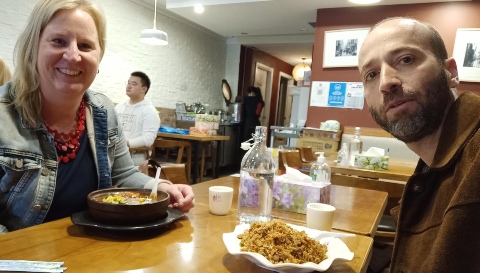Emma Kirkwood, the 274th person I’ve met on my quest to have lunch with 500 strangers, draws an important distinction between an idea being wrong and a person being wrong.
The former does not equal the latter.
So why can it feel so threatening to admit we might be wrong?
Because if we attach our identity to a particular idea, and if it turns out we’re wrong about that idea, then our very identity would be called into question.
In that way, an attack on one of our ideas feels like an attack on us – which means that to defend ourselves, we need to defend our idea.
Emma is a business and leadership coach with Beyond Frontiers Consulting. Part of her job involves trying to open her clients’ minds to the idea they might be wrong. This is easier said than done; Emma herself says she can struggle to accept one of her beliefs might be wrong. I know the feeling.
Emma took a roundabout road to coaching. She began her career in HR; moved on to recruitment; and then, after doing a master’s degree in employee relations, employment law and human resources, became a workplace investigator.
That involved investigating accusations of sexual harrasment, bullying and fraud, amongst other things.
Some people, Emma discovered, were open-minded enough to accept they’d done the wrong thing; most, though, would either deny the act or excuse it. It’s hard to admit to behaving badly when that feels like admitting to being a bad person.
Emma also discovered that workplace problems were generally caused by flawed systems rather than flawed individuals. That’s why she eventually became a business and leadership coach – so she could treat the causes rather than the symptoms.







Leave A Comment